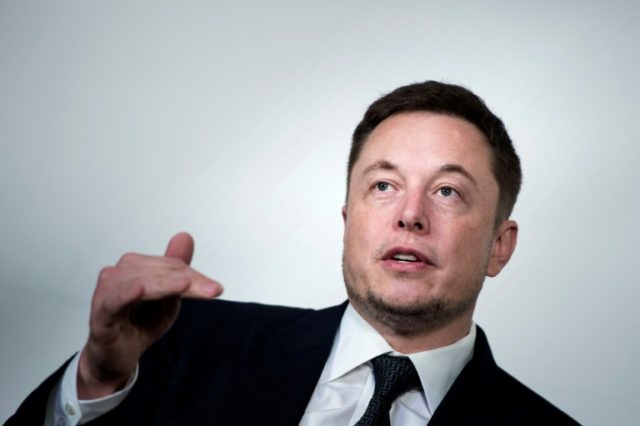The value of Tesla Inc. stock plunged by about $5.4 billion over a 48-hour period this week as the company declared a large quarterly loss and finally acknowleded that deliveries of its high-volume Model 3 will be delayed by at least 6 months.
Tesla (OTC: TSLA) has only made a profit in one quarter of its 14-year existence, and that was only due to selling federal and state tax credits to traditional auto manufactures and others that actually do make taxable profits.
Although Tesla’s $2.98 billion third quarter revenue slightly beat Wall Street analysts’ estimates, the company lost $671 million, or $2.92 per share. That was twice the-$336 million loss in the prior quarter, and set an all-time cash burn high of $16 million per day.
Breitbart News reported in early October that CEO Elon Musk had announced that Tesla Inc. had its “all-time best quarter” with record deliveries of 26,150 vehicles, including 14,065 Model S sedans; 11,865 Model X SUVs; and 220 Model 3 economy cars. That was considered a disappointment for Model 3 deliveries, and its stock sold off by 1 percent.
But Musk emphasized that through “physics-first principles,” Tesla would shape a new mode of industrial production to improve efficiency by “factors of 10 or even 100 times.” He said Tesla’s key advantage in building all-electric vehicles was limiting the number of moving engine parts to 20, versus up to 10,000 for internal combustion engines.
With investors reassured that Tesla was on track to ramp up to delivering 5,000 Model 3 vehicles per week in the December quarter and 10,000 per week in the March quarter, Tesla’s stock traded up on big volume to an interim high of $362.55 on October 18.
But the stock opened at $301.15 per share on November 2 and has been trading down after Musk acknowledged on the company’s third quarter conference call that it is “difficult to predict” when the bottlenecks will be cleared in production of Model 3s. He said he did not expect to be at 5,000 Model 3 units a week until late March.
Musk tried to reassure shareholders that he is “leading from the front lines” to battle “production hell” delays. Tesla said the main problem holding up production of the Model 3s were production delays at Tesla’s $5 billion Gigafactory in Reno, Nevada, where Panasonic four-battery cell modules are automatically inserted into an aluminum-wrapped battery case. Musk referred to his Instagram post last week where he is having a late-night campfire with a couple of managers on the Gigafactory’s roof as a sign of his focus.
Musk did assign some blame for production delays on the Model 3 being more automated, compared to the company’s largely hand-built luxury Model S sedans and Model X SUVs. Musk stated that “bringing this level of automation online is simply challenging in the early stages of the ramp.”
But he failed to comment on Edward Niedermeyer’s brilliant October 30 report in the Daily Kanban industrial blog that Tesla did not give a purchase order to a major automated tooling supplier to develop two “Body in White” (BIW) transfer lines for the Model 3 early this year. Although car companies normally place fully-designed orders for BIW lines with at least a two-year lead time, and BIW manufacturers almost always assemble and test the line at their factories, Tesla asked for a 4-month delivery and wanted to expedite delivery by doing a risky “cold build” line layout and quality testing at Tesla’s factory.
Niedermeyer added that “disagreements between Tesla’s designers and engineers resulted in numerous revisions to the scope of the contract and eventually led Tesla to drop the second line from its purchase order.” The BIW vendor blamed Tesla’s high level of turnover in key positions, which Breitbart News has highlighted in the past. Without the second BIW assembly line, Tesla can never produce 10,000 units per week.
In another example of Tesla failing to have enough lead time to produce Model 3 units, Panasonic’s Chief Executive Kazuhiro Tsuga told Reuters that Gigafactory batteries are still being mostly made by hand. “This process (for battery packs) will be soon automated, and then the number of vehicles to be produced will rise sharply.” Tsuga declined to comment on how far Tesla Model 3 production is behind its targeted delivery schedule.

COMMENTS
Please let us know if you're having issues with commenting.